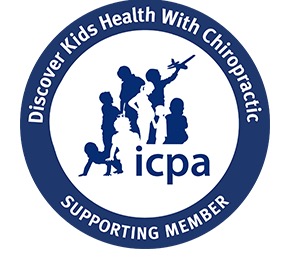Unlike traditional medicine, chiropractic care is a more comprehensive approach that goes beyond just managing symptoms. It focuses on enhancing the body’s innate ability to heal itself, thus addressing the problem at its root.
However, for your body to do anything at all, it needs to have proper nutrition. In fact, nutrition is a very important aspect of chiropractic care that can significantly influence the outcome of your wellness journey.
From musculoskeletal integrity to maintaining spinal health, nutrition is an extremely important part of wellness. Let’s look at nutrition’s role in chiropractic wellness plans and how it can help improve outcomes.
The Connection Between Nutrition and Spinal Health
Nutrition is the cornerstone of overall health and wellness, influencing virtually every aspect of the body’s functioning, so it shouldn’t come as a surprise that there is a connection between nutrition and chiropractic care. Our food provides essential nutrients vital for cellular repair, energy production, and the maintenance of various physiological processes.
A well-balanced and nutrient-rich diet plays a pivotal role in promoting optimal health, bolstering the immune system, and fostering a state of well-being. Beyond that, it’s also crucial for supporting the body’s various systems, such as the musculoskeletal system.
The spine is a complex structure comprising vertebrae, discs, and supporting tissues. Because the spine is important in keeping your body upright, managing movement, and sending neurological messages from one part to the other, it also needs proper nutrition.
Here are just some of the minerals needed by the body for spinal health.
Calcium for Bone Health
Calcium is commonly associated with bone health and plays a crucial role in maintaining the strength and density of the vertebrae. Calcium supports bone mineralization and reduces the risk of conditions like osteoporosis, which can affect structural integrity.
Vitamin D for Calcium Absorption
Vitamin D is sometimes called the sunshine vitamin and is essential for the absorption of calcium. A deficiency in vitamin D can also compromise bone density and, consequently, the health of the spine.
Magnesium for Muscle Function
Magnesium is crucial for muscle function, especially the muscles around the spine. Having adequate magnesium levels allows the muscles to relax, reducing tension and potential stress on the spine.
Understanding the specific nutritional needs of the spine is integral to appreciating the impact of nutrition on chiropractic care. Chiropractic adjustments, which seek to align the spine and address misalignments, can be complemented by a diet rich in the nutrients essential for spinal health.
Anti-Inflammatory Diet and Chiropractic Care
Inflammation is a natural response of the body’s immune system to injury or infection. However, when inflammation becomes chronic, it can contribute to a range of musculoskeletal issues, including those affecting the spine.
Recognizing the impact of inflammation on spinal health, chiropractors often emphasize the importance of adopting an anti-inflammatory diet.
An anti-inflammatory diet focuses on reducing the consumption of foods that may trigger inflammation while promoting the intake of those with anti-inflammatory properties.
Foods to Include in an Anti-Inflammatory Diet
- Fatty fish are rich in fatty acids, which contain anti-inflammatory properties. Some examples include salmon, sardines, and mackerel.
- Leafy greens contain antioxidants that can combat inflammation. Spinach, kale, and collard greens are some examples.
- Berries like blueberries, strawberries, etc., contain compounds that can reduce inflammation.
- Nuts and seeds like almonds and walnuts have healthy fats and anti-inflammatory compounds that can reduce inflammation.
- Spices like turmeric and ginger are highly acclaimed for their detox powers. They have anti-inflammatory effects and are often added to various dishes for this and for their excellent taste.
Foods to Limit or Avoid
- Processed foods that are high in trans fats or refined sugars can contribute to inflammation.
- Red meat in excess can promote inflammation due to its high levels of saturated fat. Red meat is important in your diet in balanced amounts.
- Sugary beverages are often associated with increased inflammation.
- Excessive Omega-6 fatty acids can be a problem if imbalanced with Omega-3s.
Adopting an anti-inflammatory diet aligns with the goals of chiropractic care by creating an internal environment conducive to healing and recovery. This dietary approach supports chiropractic adjustments by addressing underlying inflammation that may hinder the effectiveness of treatments.
Chiropractic patients incorporating anti-inflammatory practices into their lifestyles may experience enhanced outcomes, reduced pain, and improved overall spinal health.
Individualized Nutrition Plans in Chiropractic Care
Chiropractors, as holistic healthcare practitioners, recognize nutrition’s profound impact on overall health and its interconnectedness with spinal well-being. They also recognize that each person’s body is different and will have varying needs accordingly.
Through detailed consultations and assessments, they gather essential information about a patient’s dietary habits, nutritional deficiencies, and potential inflammatory triggers. This comprehensive understanding allows chiropractors to identify how nutrition may be impacting a patient’s musculoskeletal health and, consequently, the effectiveness of chiropractic adjustments.
Using this information, a chiropractic expert will provide an individualized nutrition plan to patients. These plans will complement chiropractic adjustments and go beyond the generic dietary recommendations. The aim is for the nutrition plan to aid with chiropractic care.
Addressing Nutritional Deficiencies
Chiropractors may identify specific nutritional deficiencies that could affect the spine’s health. For instance, individuals with low calcium or vitamin D levels may be guided towards incorporating more dairy products, leafy greens, or sunlight exposure into their diets.
Incorporating Anti-Inflammatory Strategies
Based on the patient’s musculoskeletal concerns, chiropractors may recommend an anti-inflammatory diet to mitigate inflammation and enhance the outcomes of chiropractic adjustments. This could involve emphasizing foods rich in omega-3 fatty acids, antioxidants, and anti-inflammatory spices.
Promoting Hydration for Joint Lubrication
Adequate hydration is crucial for maintaining joint health, including the joints of the spine. Chiropractors may emphasize the importance of staying hydrated and provide practical tips on incorporating sufficient water intake into daily routines.
Supporting Weight Management
For individuals with weight-related concerns impacting spinal health, chiropractors may collaborate on nutrition plans that support healthy weight management. This can include guidance on portion control, balanced meals, and nutrient-dense food choices.
Unlock a Healthier You with Chiropractic Care in Prospect Heights
If you’re looking for an expert chiropractor to help you with your spinal health and bodily needs, J and Co Chiropractic in Prospect Heights is here to help! Our professionals will consider your problem and provide you with a thorough treatment and nutritional plan according to your body’s specific needs. Contact us now and book an appointment!


